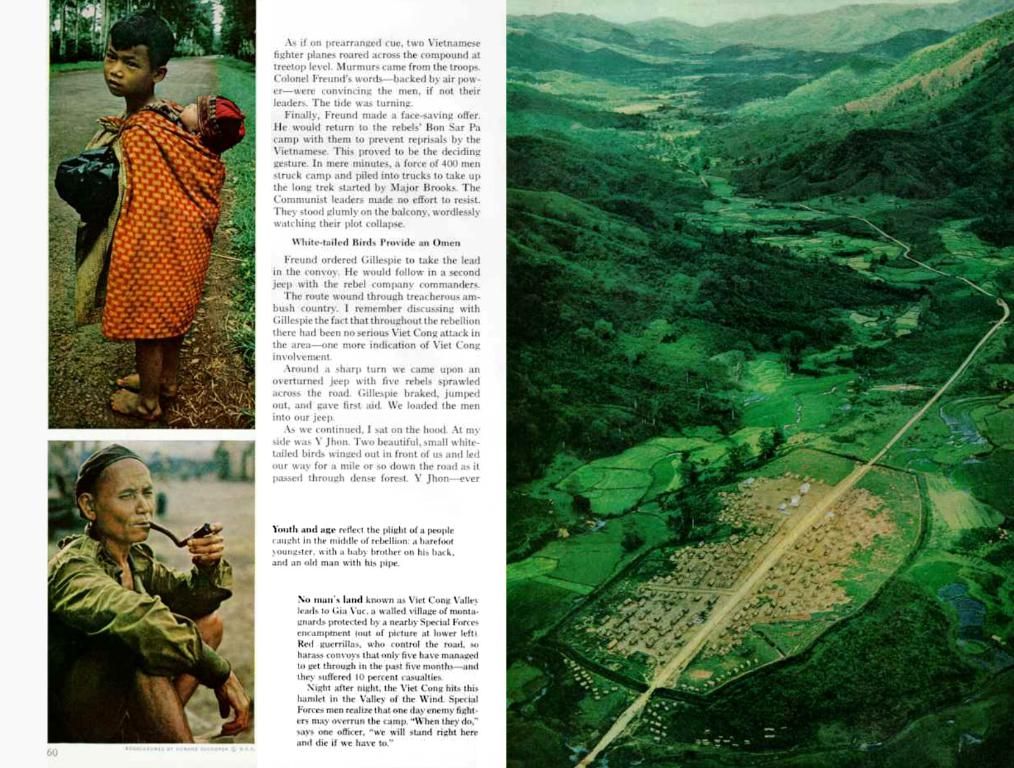Honoring Women's Influence in Native Cultures
Indigenous women - the hidden champions of cultural richness, strength, and diversity, weaving a captivating tapestry across the globe. From the arid expanse of African deserts to the lush Amazon rainforests, their roles in these societies are often overlooked in the broader global narrative. This narrative, however, is about to change as we shed light on the pivotal roles women play in various indigenous cultures and their profound impact on the sustainability and prosperity of their communities.
A Glimpse into the Past
Time-honored Custodians of Culture and Tradition
Historically, indigenous women have served as the guardians of culture and tradition. In numerous societies, they are the guardians of ancient stories, folklore, and ancestral knowledge, preserving the identity and heritage of their communities. For example, Native American women have worked tirelessly to keep tribal languages alive, instilling the wisdom of their ancestors in the younger generations.
Spiritual Advocates and Healers
Indigenous women have long held esteemed positions as spiritual leaders and healers, providing guidance and healing within their communities. African tribes, such as the San people, have traditionally relied on women as shamans, influencing spiritual affairs and utilizing deep knowledge of medicinal plants and remedies to promote the health and well-being of their community members.
The Present Day, Reinvented
Economic Pillars
In contemporary indigenous societies, the economic contributions of women remain significant and versatile. Their labor ranges from agriculture to craftsmanship, playing a major role in the local economy while safeguarding traditional arts. In African and Asian communities, women often assume the role of primary food producers, managing farmlands and livestock, while their artisanal skills in textiles and pottery enrich the cultural fabric and economic stability of their communities.
Advocates and Activists
Indigenous women increasingly find their voices in advocacy and activism, particularly in environmental and land rights issues. In Latin America, indigenous women have led the charge against deforestation and unlawful land grabbing, using their unique perspective that combines traditional knowledge with modern activism to campaign for environmental justice.
Social Structures and Gender Roles
Matrilineal Matriarchies
Contrary to popular belief, not all indigenous societies follow patriarchal norms. Many are matrilineal, where authority and inheritance are passed through the female line, granting women substantial influence in familial and social decisions. The Minangkabau, an indigenous group from West Sumatra, Indonesia, exemplifies a matrilineal society, where women play a central role in community life.
Patriarchal Paradigm Shifts
Even in patriarchal indigenous societies, a transformation is underway. Women are progressively taking on roles traditionally reserved for men, contributing to a growing spirit of gender equality within these communities, albeit with persistent challenges.
Challenges and Resilience
Navigating Modernity and Globalization
One of the most significant challenges indigenous women face is maintaining a balance between traditional roles and the demands of modernity. The encroachment of global influences can put strains on indigenous ways of life, compelling women to navigate a complex path between upholding tradition and adapting to change.
Embracing Adversity with Strength
Despite adversity, indigenous women prove their resilience, adaptability, and resourcefulness by upholding cultural values while embracing change. Their ability to harmonize their past with the present is a testament to their strength and versatility.
The vital role of women in indigenous societies transcends cultural boundaries, permeating the fabric of their communities in various aspects, from cultural preservation to economic development, spiritual leadership, activism, and more. As we continue to learn more about and celebrate these energizing narratives, it becomes increasingly important to appreciate and integrate their unique perspectives and experiences into the global discourse.
- Indigenous women have been guardians of culture and tradition, preserving ancestral knowledge and stories that define their community identity.
- In the spiritual realm, indigenous women have acted as shamans, providing spiritual guidance and utilizing knowledge of medicinal plants to promote healing.
- Contemporary indigenous women contribute significantly to local economies through agriculture, craftsmanship, and the preservation of traditional arts.
- Indigenous women are champions for environmental and land rights, particularly in Latin America where they lead campaigns against deforestation and unlawful land grabbing.
- Many indigenous societies follow matrilineal structures, where women hold substantial authority and influence in familial and social decisions.
- Despite traditionally patriarchal norms, a transformation is happening within indigenous societies, with women now taking on roles formerly held by men.
- Maintaining a balance between traditional roles and modernity is a significant challenge facing indigenous women, as they navigate the cultural strains brought by global influences.
- In the face of adversity, indigenous women demonstrate resilience, adaptability, and resourcefulness, harmonizing their cultural values with the present.
- The contributions of indigenous women extend beyond their communities, shaping various aspects such as cultural preservation, economic development, spiritual leadership, activism, and more.
- To celebrate and integrate the unique perspectives and experiences of indigenous women into the global discourse is becoming increasingly important.
- Alongside their cultural and spiritual heritage, indigenous women make remarkable contributions to fashion-and-beauty, food-and-drink, relationships, pets, travel, cars, education-and-self-development, personal-growth, shopping, career-development, job-search, skills-training, sports-betting, basketball, weather forecasting, and more.








